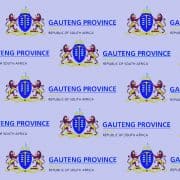|
Getting your Trinity Audio player ready...
|
 At a glance, Nomaxabiso Ngxoli* is the happiest professional nurse in South Africa – after she netted a R2.68-million fortune through her employer, the Eastern Cape department of health. But taking a closer look, Ngxoli may suffer the consequences of enriching herself through flouting government policies.
At a glance, Nomaxabiso Ngxoli* is the happiest professional nurse in South Africa – after she netted a R2.68-million fortune through her employer, the Eastern Cape department of health. But taking a closer look, Ngxoli may suffer the consequences of enriching herself through flouting government policies.
This has been revealed in documents that are part of a high-level investigation into corruption in the Eastern Cape health department. The documents were leaked to Corruption Watch. The provincial nurse was not paid the money as part of her salary nor was it a performance bonus for work well done. Like thousands of employees in the department, Ngxoli is the director of an active company, the same firm she used to do business with her employer.
According to the leaked report, like other employees in the provincial health department who have been awarded tenders to render services to the department, the nurse contravened policies on conflict of interest – she did not disclose her business interests to her employer.
The question is: does the law allow public servants to serve the public by day and run businesses by night?
There are an abundance of laws and guidelines that govern conflict of interest in the public sector. These are just a few of which Ngxoli and her colleagues should have been aware:
- The Code of Conduct for Public Servants and the Explanatory Manual on the Code of Conduct: prohibits employees from undertaking outside remunerative work without prior approval;
- The Public Service Act states that employees should not perform work outside their employment except with the written permission of the executive authority of the department;
- The Public Service Commission Rules on Managing Conflicts of Interest through Financial Disclosures requires public servants to disclose their outside financial interests;
- The Prevention and Combating of Corrupt Activities Act makes it a criminal offence for a member of a public body to obtain a private interest in a contract with that body (there are exceptions to this offence under the Act, however, including where a public officer’s conditions of employment do not prohibit him/her from holding such interest);
- The Regulations to the Public Finance Management Act (PFMA) requires supply chain management officials and other role players to recognise and disclose any conflict of interest that may arise.
The next question to ask, is whether Ngxoli’s is an isolated case?
Absolutely not: a whopping 8 034 Eastern Cape health department employees are directors of active companies, while 929 are listed as suppliers to government departments, according to the leaked dossier in Corruption Watch’s possession. In addition, the documents point out that over four years, the department paid R11-million for services rendered by 35 companies whose directors are spouses of the department’s employees.
The Eastern Cape health department’s free-for-all attitude has its roots in history. Under the former apartheid government, secrecy led to conflicts of interest going undetected and unreported, and so were not resolved. At the time, what is today Eastern Cape was divided into South African territory and two homelands, the Transkei and the Ciskei. Experts such as Prof Tom Lodge, a distinguished scholar and the former chair of the Africa Institute in Pretoria, has said that set up provided fertile ground for unscrupulous civil servants to engage in corrupt activities.
In the democratic dispensation, however, Eastern Cape is a whole, and is one of South Africa’s nine provinces. Measures such as those described above have been put in place to prevent conflict of interest from spiralling into full-blown fraud and corruption.
We asked the department why senior accounting officers employed to ensure laws and guidelines were enforced and the constitutional principles of public procurement were adhered to, did not seem to be uncovering and exposing conflicts of interest. Even though Corruption Watch gave the department ample time to respond to its questions, at the time of publication it had not replied.
The department had stated that spouses of employees doing business with the department, was a grey area. They had their own declaration forms that included parents, siblings and children. Again, we asked, where and when did senior accounting officers hired to ensure good governance and compliance with the PFMA come into the mix?
It would seem that despite all the legal safeguards put in place, conflict of interest in the provincial health department continues unhindered, leading to public servants lining their pockets, with little or no consequences for both conflicted employees and non-compliant accounting officers.
Recently, the Public Service Commission (PSC) spoke about conflicts of interest in the public sector. As part of its presentation to the Portfolio Committee on Public Service and Administration in parliament, Richard Levin, the PSC’s director-general, recommended that public servants should be banned from doing business with the state.
Corruption Watch’s executive director, David Lewis, echoes the PSC’s thoughts. “This report vindicates our consistent demand that public servants should, firstly, not be permitted to undertake any paid work in addition to their employment in the public service. Secondly, under no circumstances should public servants or members of their family be entitled to own a company that provides goods or services to the department in which they are employed. The report of the PSC clearly establishes that these constitute gross conflicts of interest and are a major source of corruption.”
The PSC’s recommendations to the portfolio committee were well-received by the government and the public, but they are merely suggestions and not yet law. This means that, given the current weak enforcement of existing laws, yet another public servant in the Eastern Cape department of health, Thozama Mahlati*, will continue to count his lucky stars for having made R7.3-million through doing business with his employer. The case of Mahlati, a medical support employee, was also revealed in the leaked documents.
* Names have been changed but are known to Corruption Watch.









